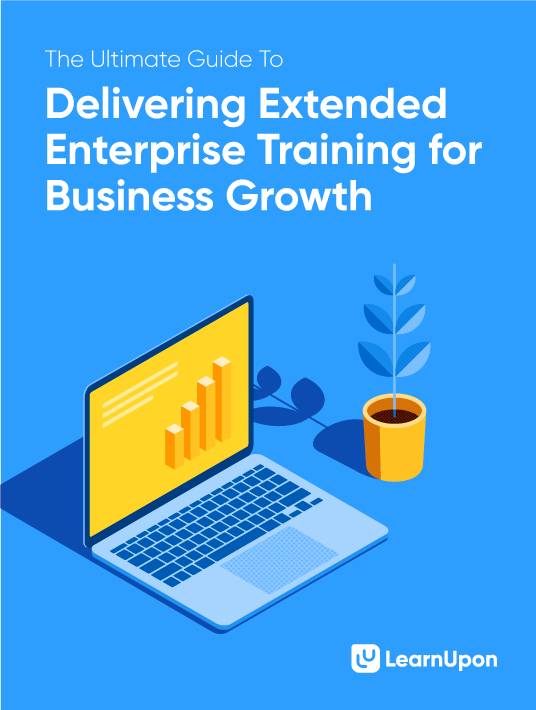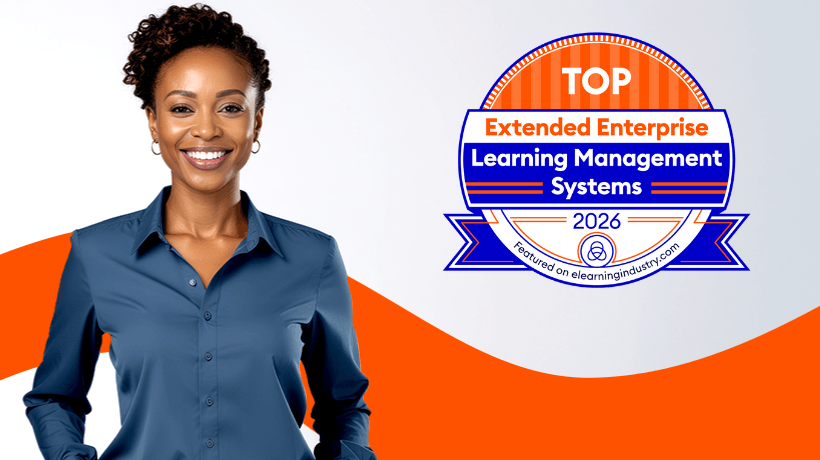What Makes A Smart Extended Enterprise Learning Solution?
The search for an extended enterprise learning solution is much clearer when you, as a buyer, know the characteristics and features that are vital. Here’s a list of the 6 factors every organization should look for in their extended enterprise learning management system.

1. Train Multiple Audiences Through Learning Portals
A good extended enterprise LMS should do one key thing - allow your organization to train multiple audiences under one system. To do this, you need a solution with Learning Portals. Learning Portals are a powerful LMS feature that enables you to set up separate learning environments for each of your audiences. With portals, your organization sets up as many of them as needed. For example, you could have a portal for employee training, another for customers, and another for partners. Significantly, each one of these is distinct and only accessible to the audience that you specify. Enclosed in each is its own unique content, URL, and chosen Admins and Managers, creating a tailored training experience.
2. Brand And White-Label The Portals
As all of the portals you create for your organization are for different audiences, it’s essential that each portal’s look and feel reflects the expectations of these audiences and instills trust. Branding and WhiteLabeling help you do this. By branding each of your LMS portals, you can add logos, pick colors, and upload banner images to give every portal a clean-cut look that’s tailored for each audience. To add another dimension, white-labeling makes it possible for you to select custom URLs for each portal. It also removes any reference to the LMS vendor within the platform, resulting in a solution that completely reflects your brand.
3. Assign Different User Roles In Portals
As you have multiple audiences within your extended enterprise, you’ll likely have a number of different teams involved in training. Within an LMS, there are different users roles. Typically, these roles are divided into Admins, Managers, Instructors, and Learners, with each role providing permissions based on the functions they will need to perform in the LMS. However, with extended enterprise training, you may need to have users assigned different roles for different training purposes. With Learning Portals, you can overcome this issue by assigning user roles on a portal level. This means that although someone is a Manager or Admin in one portal, they may have a different role in another, depending on the role you’ve chosen to assign to them. This helps share the workload and ensures the right people are accessing the right environments with the right user roles. To add another level, users can wear multiple hats. For example, for your customer training, members of your Customer Success and Support teams could be set up as Admins and Managers in that portal. But, at the same time, these team members need to do employee training, so they should be learners within the employee training portal. This makes it easier to manage your users and, critically, control their roles.
4. Copy Courses Across To Different Portals
Just because your learning environments are separate, doesn’t always mean that there won’t be some crossover. Take, for example, your partners. You could have several different types of partners including resellers and contractors. These different types of partners need their own portals as most of the training and messaging needed is distinct. However, there are some courses they both need to take, like product training. So, does this mean double the course creation work for you? It shouldn’t. A good multi-tenant LMS will allow you to copy, edit, and share courses from one portal to another. This cuts down on repetitive tasks and makes training multiple audiences much more efficient.
5. Report On All Of The Training Taking Place
Just like courses, the training reports for each audience shouldn’t be limited just to users of the portal. As there are many stakeholders who will want to monitor the learning impact, it’s essential that they can see the progress easily. As an Admin of a top-level portal, you’re able to schedule reports to be sent to any team member you wish, even if they aren’t users of the LMS. They’ll be able to see who has taken training, certificates obtained, who is due for recertification, and, crucially, track the return on investment of the learning.
6. Scalability Is A Top Priority
There’s an overarching theme to all of the above factors - scalability. The primary reason for extended enterprise training is to fuel the growth of your business by helping your network succeed, so your organization will need an LMS that is built to scale. Scalability refers to a number of things in relation to your LMS. Most often, it means user numbers - that’ll be a big number if you’re training your extended enterprise. As you grow, you’ll want to train more and more learners, set up more portals, and extend your business’s reach. As a result, you’ll need an LMS that can scale to handle your growing user numbers. Then, there’s the management of your LMS. With growing numbers, comes an increase in training tasks. Your team needs to ensure these tasks are easily manageable. An LMS that automates recurring tasks like user creation, enrollments, and reports will help you scale up the administration and make your team’s life that little bit easier. There’s a wide range of options when it comes to extended enterprise learning solutions. However, if you collate a list of what’s most needed for your business and lookout for a solution that will scale with you, you’ll be on the right path to discovering the best solution for your organization.
If you want to do more than define a smart extended enterprise learning solution, download this eBook "The Ultimate Guide To Delivering Extended Enterprise Training For Business Growth". It's a perfect starting point.
Effective extended enterprise training has a ripple effect. Not only does it guide your customer and partner success, but its benefits are also far-reaching, impacting everything from sales to engagement to retention. In case you are looking to learn how to increase your business's growth by creating extended enterprise training programs, definitely do check the Available Webinar: "Fuel Your Business’s Growth With Extended Enterprise Training.". The webinar is sponsored by eLearning Industry and presented by Phily Hayes, LearnUpon's Outbound Sales Manager.









